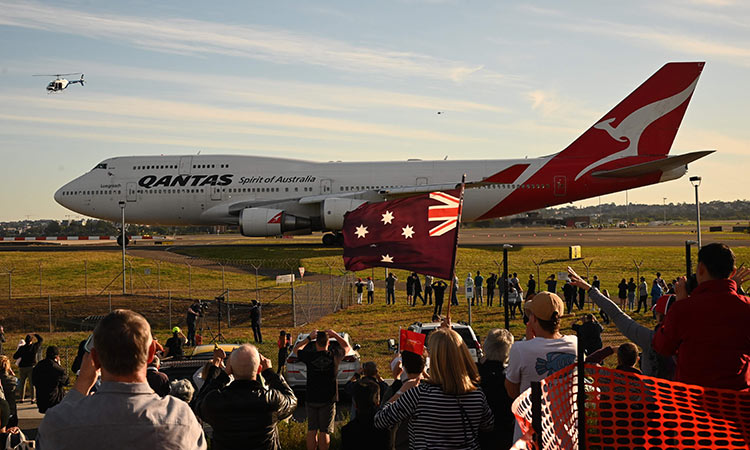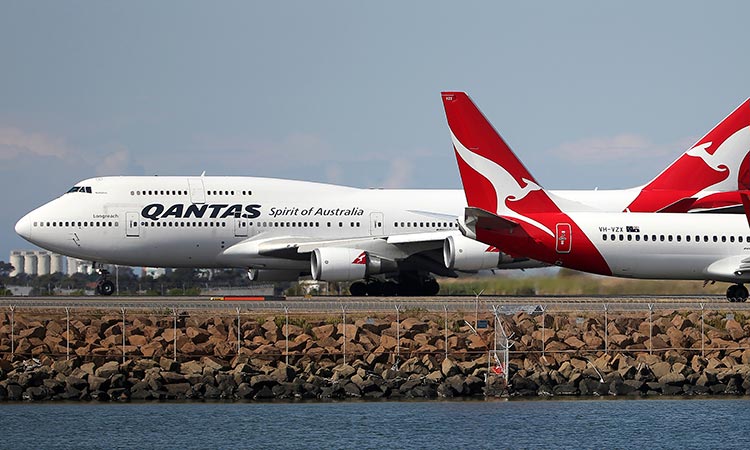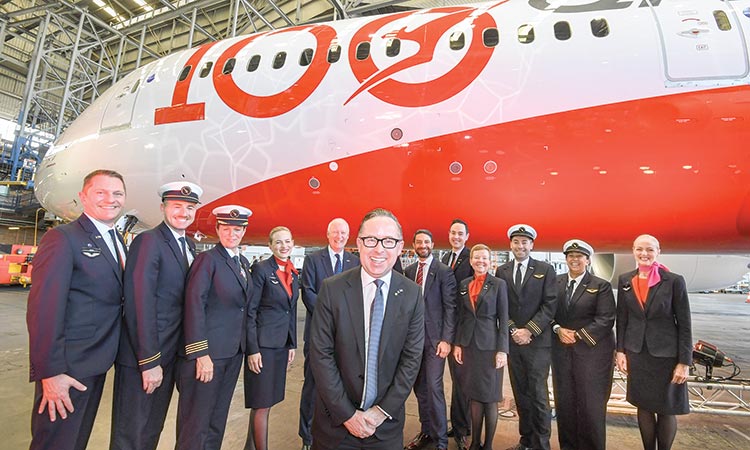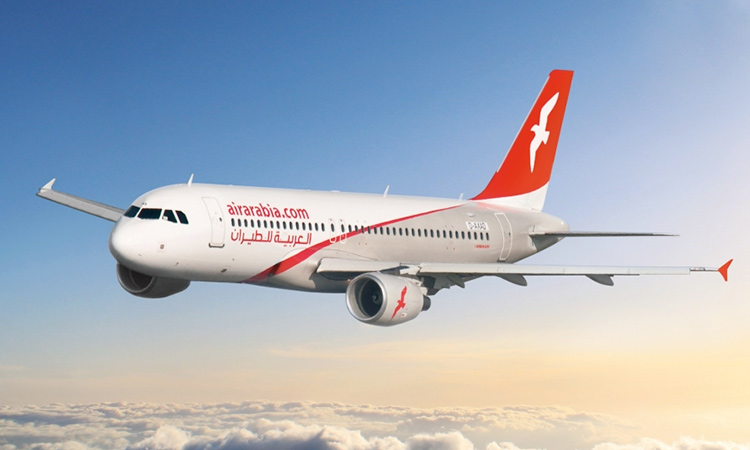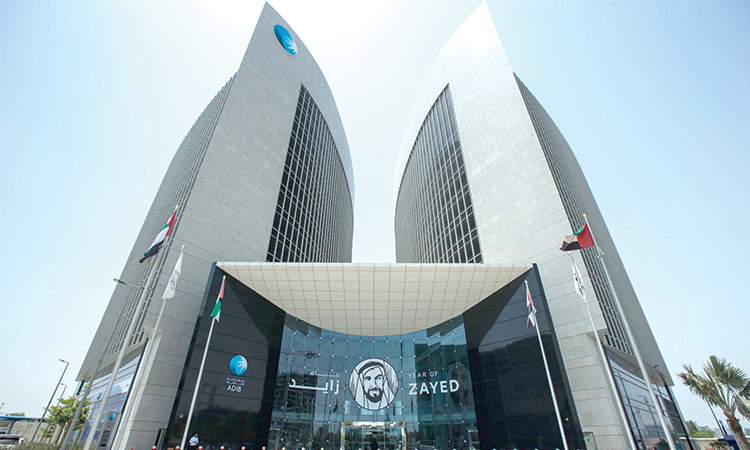Qantas to slash global capacity

Bags being loaded onto a Qantas plane in Melbourne, Australia. Agence France-Presse
The Australian airline also said it is cancelling plans for a A$150 million ($98.73 million) off-market share buyback to preserve cash.
Qantas’ chief executive and chairman will take no salary for the rest of the current financial year, the management team will receive no bonuses and all staff are being encouraged to take paid or unpaid leave.
“We are using every lever we can to avoid redundancies,” Qantas Chief Executive Alan Joyce told reporters in Sydney. “We think we can do that into September with these cuts.”
Airlines around the world are experiencing a collapse in demand due to the coronavirus, which an industry body last week estimated could lower passenger revenue by as much as $113 billion this year.
Qantas shares fell as much as 7.2% but rebounded to close 7.2% higher, compared with a 3.1% rise in the broader market.
“This is a significant but appropriate response,” Jefferies analyst Anthony Moulder told clients of the action taken by management.
The airline said it could no longer provide guidance on the financial impact of the coronavirus, which at the time of its half-year results on Feb. 20 it had estimated could result in a A$100 million to A$150 million hit to underlying earnings before interest and tax this financial year.
The carrier is now grounding the equivalent of 38 planes, more than double the 18 it had announced last month. Qantas’ capacity reduction for the June quarter will rise to 17%, up from 4% at the time of its interim results.
That includes plans to ground eight of its 12 A380 superjumbos, with two remaining flying and the other two in maintenance.
Sydney Airport Holdings Pty Ltd, Australia’s largest airport, said provisional data for the first nine days of March indicated a 25% fall in international passengers and a 6% decline in domestic passengers.
Qantas had been expected to place an order for up to 12 A350-1000 planes capable of the world’s longest flights from Sydney to London by the end of the month.
Airbus had set that deadline on the basis the production slots were potentially valuable and could be sold to other airlines, Joyce said.
“In the current environment that doesn’t seem to be the case. Nobody is ordering aircraft,” he said. “We have asked Airbus for a delay in the decision. We would rather wait for the coronavirus issue to be out of the way before we put a firm aircraft order in for the A350.”
Airbus did not respond immediately to a request for comment.
Joyce said the airline remained hopeful of pilots voting for a proposed pay package for the flights. Last month, Qantas said it would hire other pilots to fly the A350s if a deal was not approved.
The union has not yet made a formal recommendation to Qantas pilots. Memos last week from two leaders, viewed by Reuters, advised pilots to reluctantly approve the company’s offer, but the pair do not represent the entire union panel.
Meanwhile, Shares of Boeing Co dropped more than 12% on Monday amid a broader market plunge as pressure mounted on global aviation from the spread of the coronavirus and US regulators said they disagreed with Boeing’s argument about the safety of wiring bundles on the grounded 737 MAX jet.
Underscoring the global risks for America’s largest exporter, Ethiopian investigators singled out faulty 737 MAX systems in a new interim report on last year’s crash, the second of two fatal accidents that plunged Boeing into its worst-ever crisis.
Industry sources said airlines, facing a sharp drop in travel demand due to rising coronavirus outbreaks, were starting to request deferring aircraft deliveries and cash downpayments to Boeing and European rival Airbus.
Boeing shares were down at $229.12, a level not seen since 2017.
Adding to a sense of mounting anxiety, Boeing’s new Chief Executive Officer Dave Calhoun was forced to apologize to senior staff after a rare attack on his predecessor and company leadership, which sources say provoked criticism from within the senior ranks of the company as well as the rank-and file.
Calhoun, who took over as CEO in January after serving about a decade on Boeing’s board, told senior staff by email on Friday he was “both embarrassed and regretful” over his comments in a New York Times interview earlier in the week.
“It suggests I broke my promise to former CEO Dennis Muilenburg, the executive team and our people that I would have their back when it counted most,” Calhoun said. “I want to reassure you that my promise remains intact.”
Calhoun’s email came as the US Federal Aviation Administration (FAA) told Boeing on Friday it did not agree with the planemaker’s argument that its 737 MAX wiring bundles meet safety standards. Nonetheless, the FAA said it was now up to Boeing to decide how to proceed.
Separately, Boeing said an employee at its Everett facility in Washington state had been quarantined after testing positive for the coronavirus.
Boeing in February said it did not believe it was required to separate or move wiring bundles on its grounded 737 MAX jetliner that regulators had warned could cause a short circuit on the 737 MAX, and lead to a crash if pilots did not react soon enough.
There are more than a dozen different spots on the 737 MAX where wiring bundles may be too close together. Most of the locations are under the cockpit in an electrical bay.
Boeing has noted in talks with the FAA that its 737 NG has the same wiring bundles and has been in service since 1997, logging 205 million flight hours without any wiring issues.
A company official told Reuters in January, Boeing had been working on a design that would separate the wiring bundles, if necessary. But moving the bundles could pose further delays to the return of the MAX. A key certification test flight is not currently expected until April or later.
Reuters
